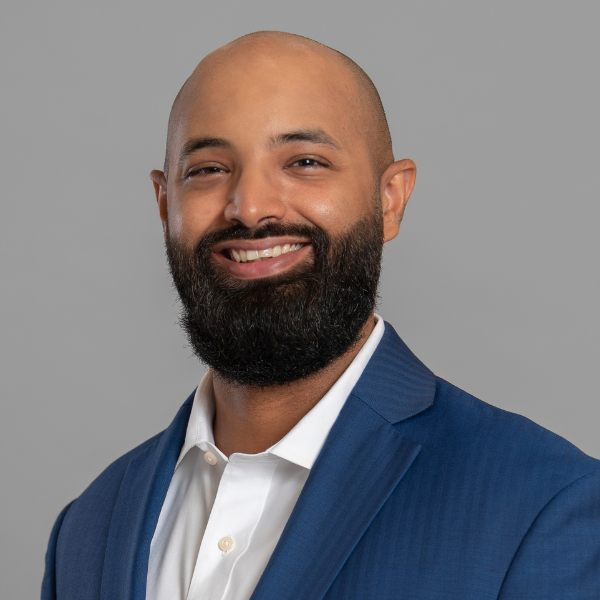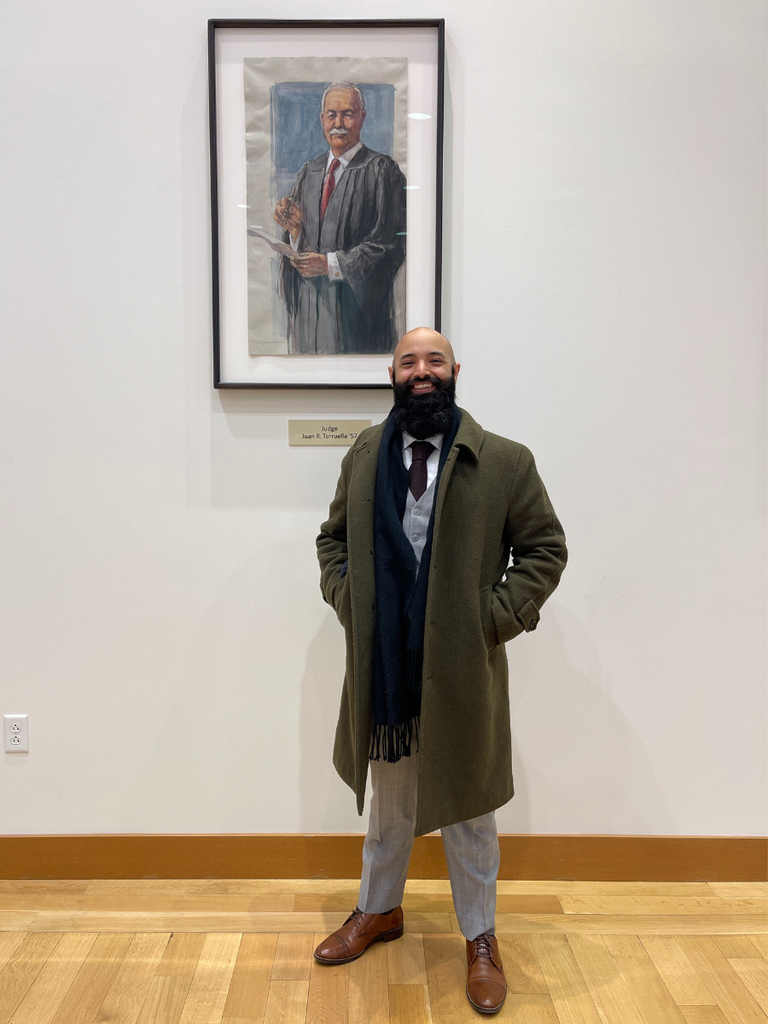Tracking the Treatment of the US Territories
Associate Professor Emmanuel Hiram Arnaud explores the application of the Federal Constitution and criminal procedure in the US and its territories.

Tracking the Treatment of the US Territories
Associate Professor Emmanuel Hiram Arnaud explores the application of the Federal Constitution and criminal procedure in the US and its territories.
“My mom is Puerto Rican, and my dad is Dominican, but he grew up in Puerto Rico as well. So, I’ve always been exposed to this dual citizenship, or really a ‘second-class’ citizenship, that exists in the US territories,” shares Professor Emmanuel Hiram Arnaud, who joined BU Law this fall. “That’s always been part of my life, and I’ve always been interested in that as a result.” Growing up, Professor Arnaud also observed the effects of policing, criminal adjudication, and mass incarceration, leading him to pursue law school in hopes of becoming a public defender.
His exploration of the legal history of the territories led him to learn about Judge Juan R. Torruella (’57), the first Puerto Rican to serve on the US Court of Appeals, including as chief judge from 1994 to 2001. “When I was in college, I picked up Judge Torruella’s book, The Supreme Court and Puerto Rico: The Doctrine of Separate and Unequal, which opened my eyes to the legal landscape of the US territories,” shares Arnaud. “I always knew that there was this sort of second-class citizenship, but that book just completely opened it up for me. And so, he’s always been an inspiration.”
After graduating from Cornell Law School, Arnaud worked as a fellowship attorney at Justice 360, where he assisted in post-conviction proceedings and conducted mitigation investigations in support of people on death row and those sentenced to life without parole as juveniles. He later worked as an appellate public defender at the Center for Appellate Litigation and as a litigation associate at Paul, Weiss.
In 2020, just before Judge Torruella passed away, Arnaud was able to clerk for his key legal influence at the US Court of Appeals for the First Circuit. Arnaud had also previously served as a law clerk for Judge Nelson S. Román at the US District Court, Southern District of New York.

Although Arnaud was initially drawn to public defense, he maintained an interest in producing scholarship. After several years of practice, he realized that academia was the best way to merge his passions for criminal procedure, adjudication, and the territories. In 2021, Arnaud returned to Cornell Law School as a visiting assistant professor and, in 2022, became an assistant professor of law at Cardozo School of Law.
Driven by his personal connections to Puerto Rico and the other US territories more broadly and the practice of criminal defense, Professor Arnaud’s research explores the application of the federal constitution, criminal law and procedure in the territories of the United States, issues of criminal procedure, and race and the law.
Inspired by Judge Torruella’s legacy and contributions to the institution, Professor Arnaud joined BU Law this fall as an associate professor of law. He is teaching the course Race and the Law, which he has designed to interrogate three interrelated doctrines: criminal adjudication as it relates to the broader field of federal Indian law, US territorial expansion and the territories, and the Equal Protection Clause of the 14th Amendment.
Arnaud shares that although these topics are directly related to the Constitution, they are rarely focused on in Constitutional Law courses. “These are basically folks who have been erased from the common discourse of constitutional law and constitutional criminal procedure,” he says. “The way that I view it, all these doctrines touch on foundational issues of what it means to be part of the United States, part of the ‘We the People.’”
Through his course, Professor Arnaud aims to prepare students to become more zealous and informed advocates for their clients. “I’m hoping that the students can take this information, and advocate differently,” he says. “They can see the systems that the Constitution and the interpretation of the Constitution created and push back to actually fulfill those promises that were made so long ago.”
Everybody is each other’s colleagues at every single moment. Kindness and honesty are central to being a good lawyer.
– Professor Emmanuel Hiram Arnaud
Critical to the structure of the course is the ability for students to openly discuss and share their perspectives. “I always push the students to get into healthy discussions and debates in class, because you’re probably never going to be in a better place to have those conversations than in the classroom,” he says. “The hope is that they learn from others’ perspectives and then go out into the world and have those perspectives in mind to help guide them in their own decision making.”
In general, Professor Arnaud advises his students to always be courteous to each other, regardless of differing opinions or stances. “Everybody is each other’s colleagues at every single moment,” he shares. “Kindness and honesty are central to being a good lawyer.”
Professor Arnaud also encourages his students to be as rigorous as possible in their studies, work, and extracurricular commitments. “You can’t give one hundred percent one hundred percent of the time, but everything you do is very important,” he says. As a new professor, Arnaud looks forward to connecting with students, having heard from colleagues and alumni that BU Law students are “kind, professional, and serious about what they’re doing.”
“That was a huge draw. I was really excited to come to a law school with students who have that reputation,” says Arnaud.
Professor Arnaud was also inspired by the work and diversity of perspectives of the BU Law faculty members, including Dean and Ryan Roth Gallo Professor of Law Angela Onwuachi-Willig. “The Dean was a big reason I joined BU Law,” he says. “The work that she’s done not only as an academic, but also since she’s arrived at BU and the community she has cultivated is a massive incentive to come here.”
Outside of the law, Arnaud’s number one passion is music. Having grown up in a musical family, Arnaud plays multiple instruments and continues to dedicate time for creating music. “I’m also probably too into sports,” says Arnaud, who plays both baseball and soccer. “I’ve given baseball stadiums way too much money in my lifetime.”